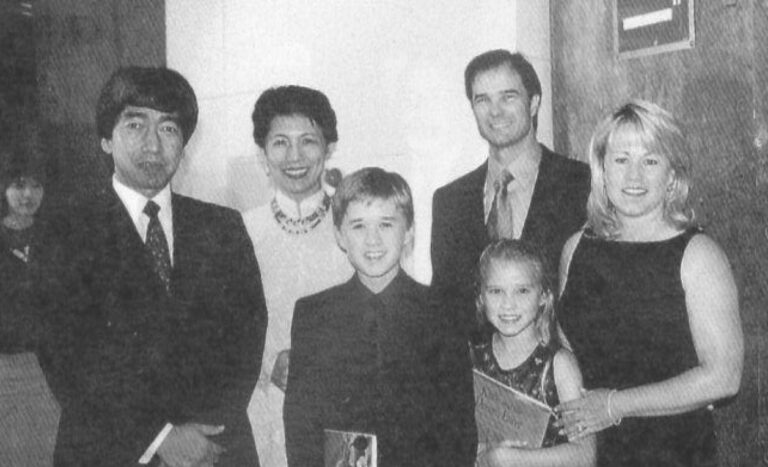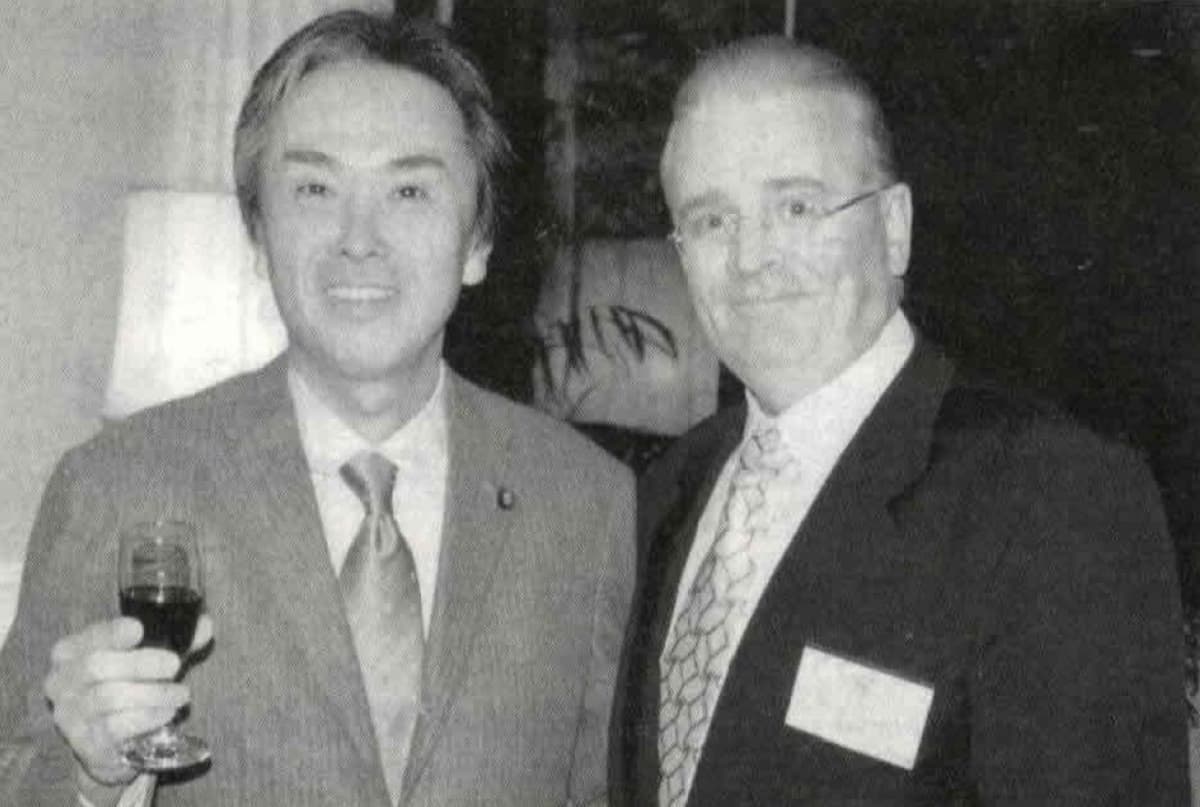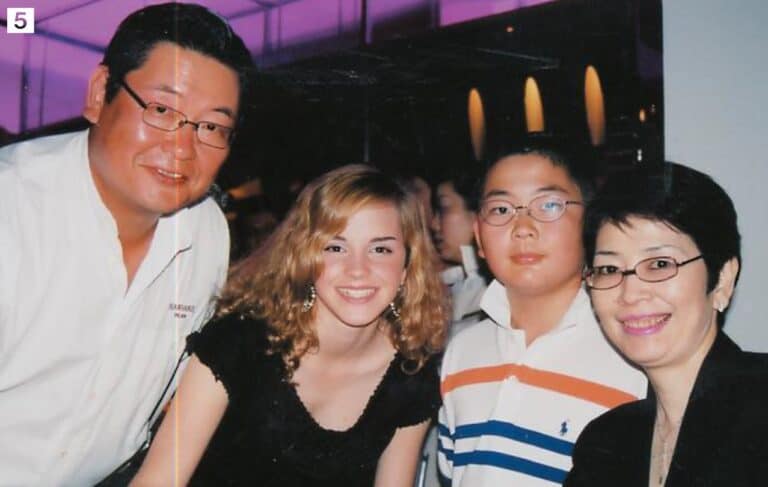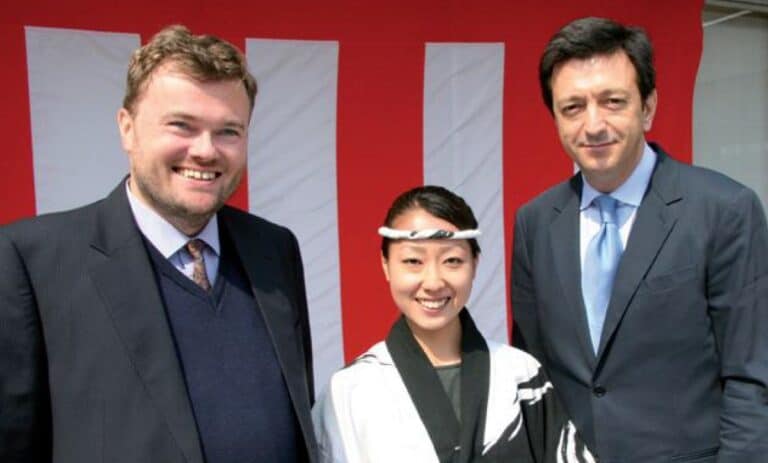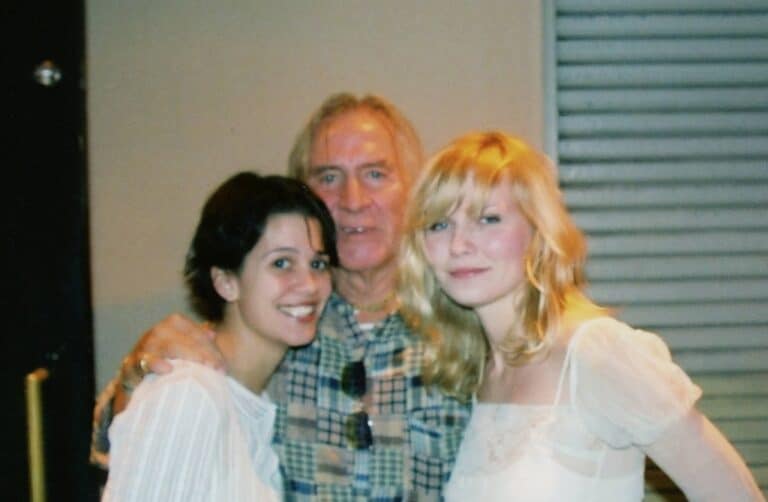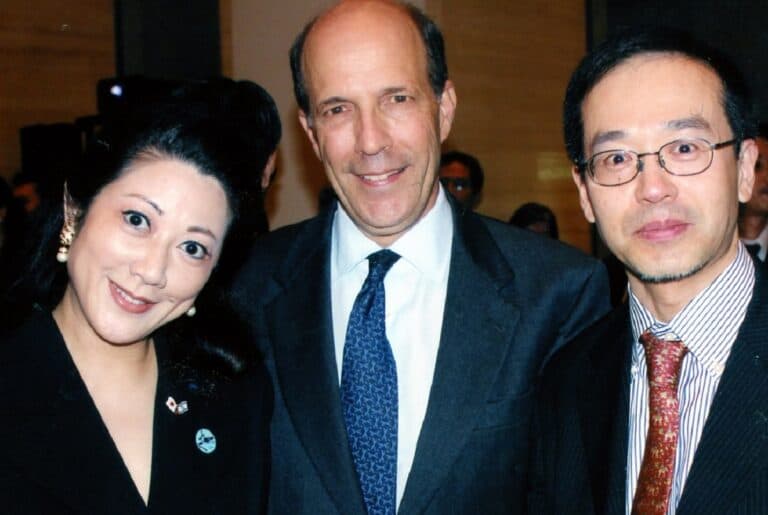Farewell Bill, Farewell Partyline
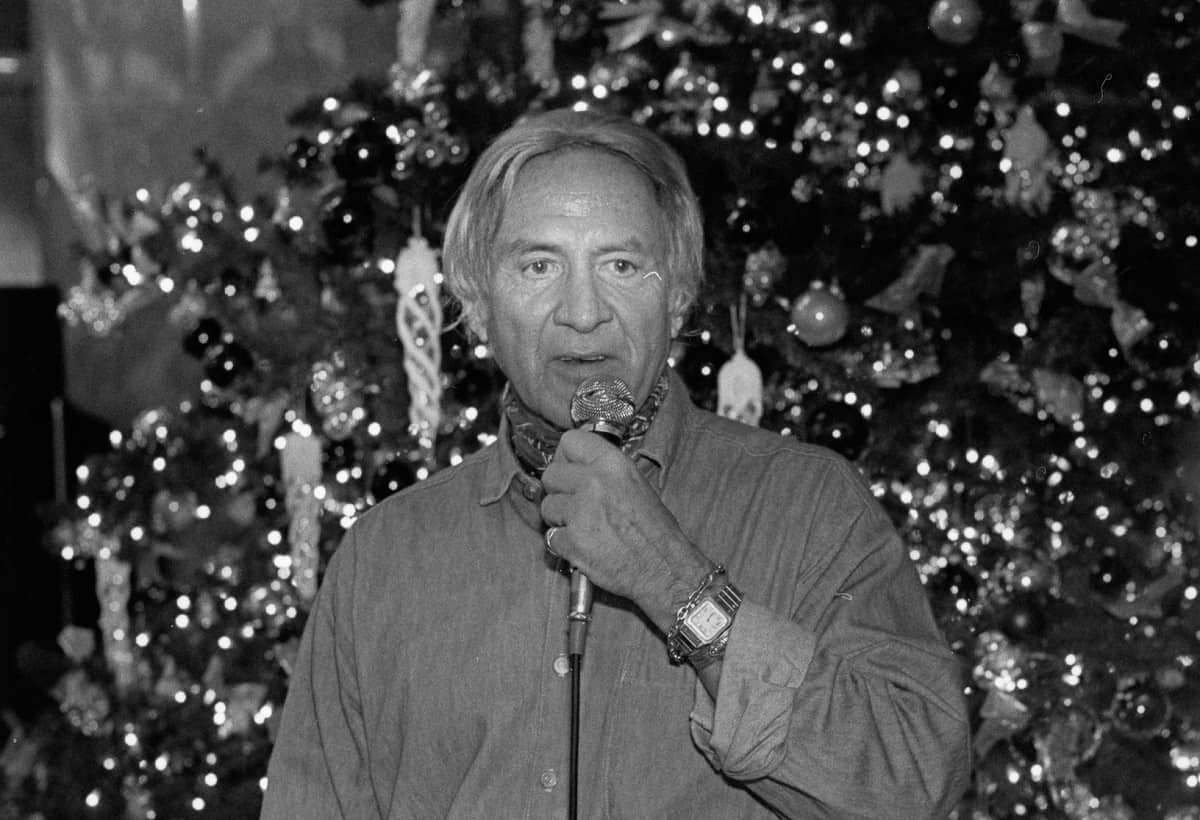
Photographs of celebrities, politicians, and dancers. Statues, masks, and handcrafts brought back from decades of travel. And cards and letters from friends from around the world. These were just a few of the things you’d find when you walked into Bill Hersey’s apartment over in Motoyoyogi. It was as much an anthropological museum as it was a place to live, and that was fitting. Because what it all came down to with Bill, who passed away on March 14 at the age of 87, was people. What they did, where they came from, what they wore, and what was special about each and every one of them.
Even before Bill came to Japan, he was fascinated by his fellow man. Born in 1930, in Perrysburg, Ohio (population 20,623), where he grew up and went to high school, Bill served in the Navy for two years. He studied anthropology – first at Columbia University, and later at the University of Arizona at Tempe. He learned and lived alongside the Native American tribes in Arizona, New Mexico, California, and Utah, and worked as a director for recreational and occupational therapy at Arizona State Hospital and as a guidance counselor at St. John’s Indian School. He later moved to San Diego, where he worked as a counselor in the Juvenile Probation Department.
It was in San Diego that he got to know some Japanese naval officers, and it was through them that he got to know more about Japan – its people, its food, and its culture – and his sights were set. Within a few months, he had saved some money, sold his car, and in 1962, bought a one-way ticket on a freighter that was making the two-week journey from Long Beach, California, to Yokohama.
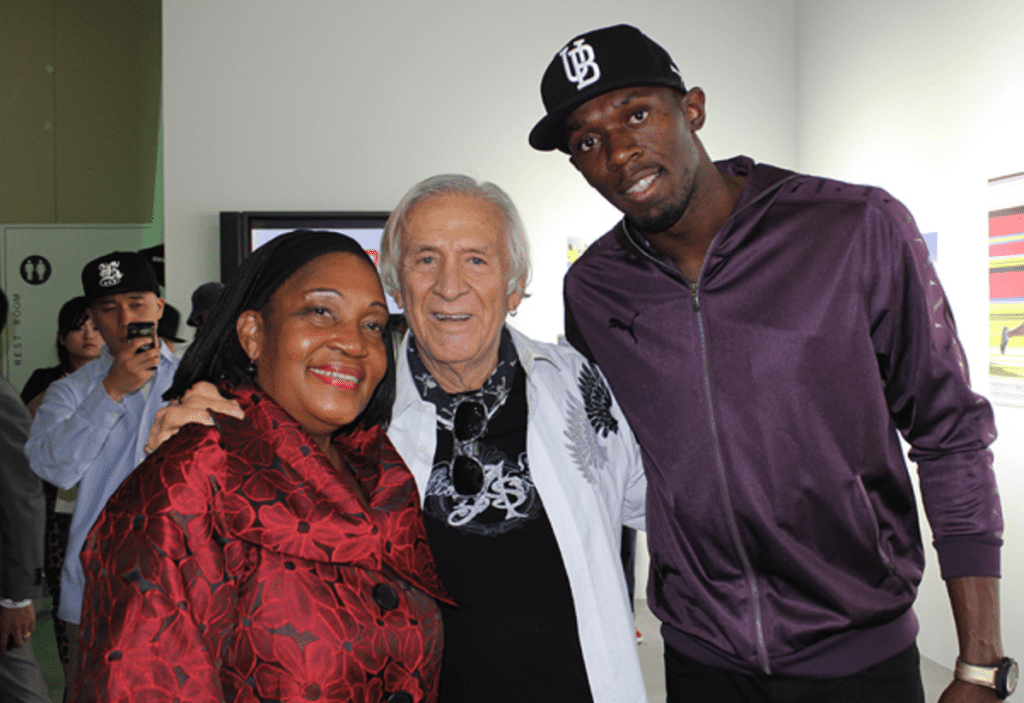
His first project in Japan was to do research on the Ainu people of Hokkaido, but after that he found himself teaching English at Chuo University, on NHK, and through writing lessons in a weekly magazine. He also got involved in the world of fashion, helping the company Van Jacket set up a boutique on Aoyama Dori. This work in the fashion industry led to work as a fashion editor for two different magazines – Heibon Punch and Shukan Playboy – for several years. He also wrote freelance pieces for magazines around the world, and worked as a fashion and commercial model. As a fashion editor, he traveled to Europe, where he arranged photo shoots, and he produced Japanese fashion shows in the Philippines, Hong Kong, Thailand, and Guam. For a while, he even had his own fashion line stocked in several Tokyo department stores.
During the 70s, he maintained a busy writing life, working on a men’s fashion column for The Japan Times, and penning pieces for the Far East Traveler, The Hollywood Reporter, and for the Japanese publications Men’s Club, Shukan Holiday, Travel in the Philippines, and Zen Tokyo Shimbun. TW founder Corky Alexander asked Bill to write a fashion column when the magazine launched in 1970, and Bill wrote for our magazine until February 2018, moving from fashion to travel and the society column for which he became famous.
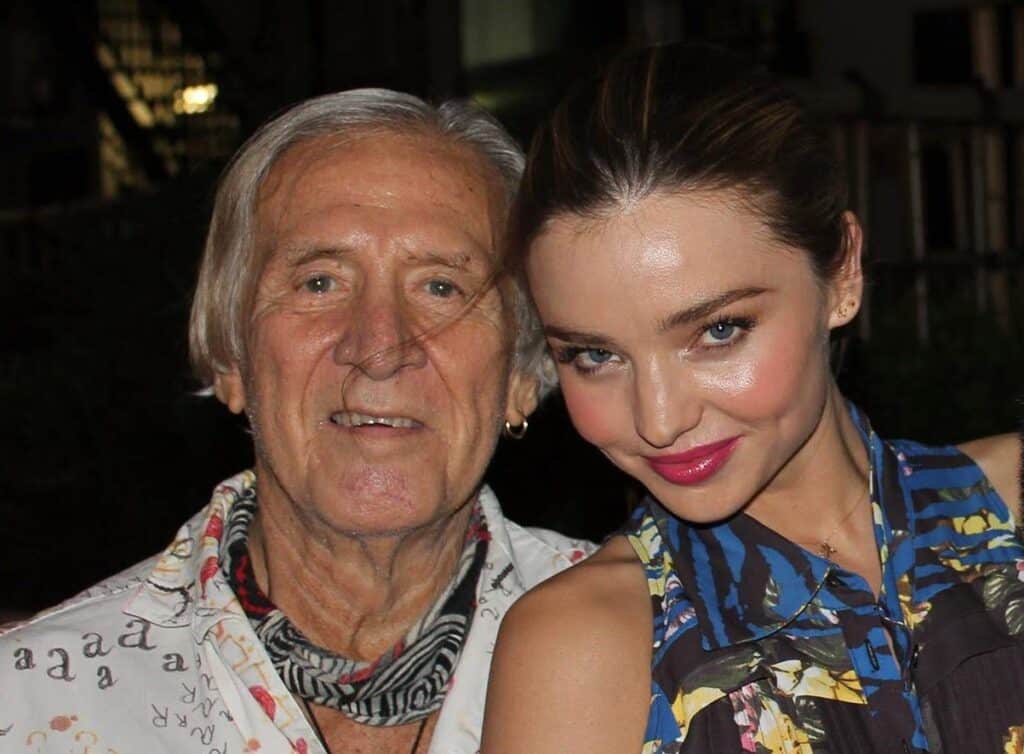
An inveterate traveler – the wanderlust that brought him to Japan in the first place never left him – Bill’s journeys took him all around the world, including Egypt, Ethiopia, Kenya, New Guinea, the Middle East, Southeast Asia, many countries in Europe, and throughout the US. For a time, he worked as a travel consultant for the Japanese travel company H.I.S., and he wrote a book, Passport to Pleasure, which was meant as a general guide for Japanese people going abroad and was reprinted more than 12 times.
The Rise of Lex Tokyo
In 1978, he started doing public relations for A-Project, a large company that owned a wide variety of discos, clubs, and restaurants. One of the company’s clubs was the Lexington Queen (Lex), which Bill helped turn into a must-visit destination for foreign celebrities, rock stars, and Japanese tarento. Bill was known for hanging outside the club until the early hours, chatting with passersby and people heading into the club. Mike Cline, a Lexington Queen regular during the 80s, recalls Bill’s generosity when it came to letting people in: “Bill was very kind to our little party gang. While Japan was Bubble rich, we were relatively poor. Bill was always letting us skip the line and the cover charge at Lexington Queen, even when the A-list celebs were there.” In addition to his work with the Lexington Queen, Bill planned parties for people and organizations including Liza Minnelli, Thierry Mugler, Prince, Fendi, The Dance Theater of Harlem, Bon Jovi, Princess Michaela von Habsburg, and Mick Jagger.
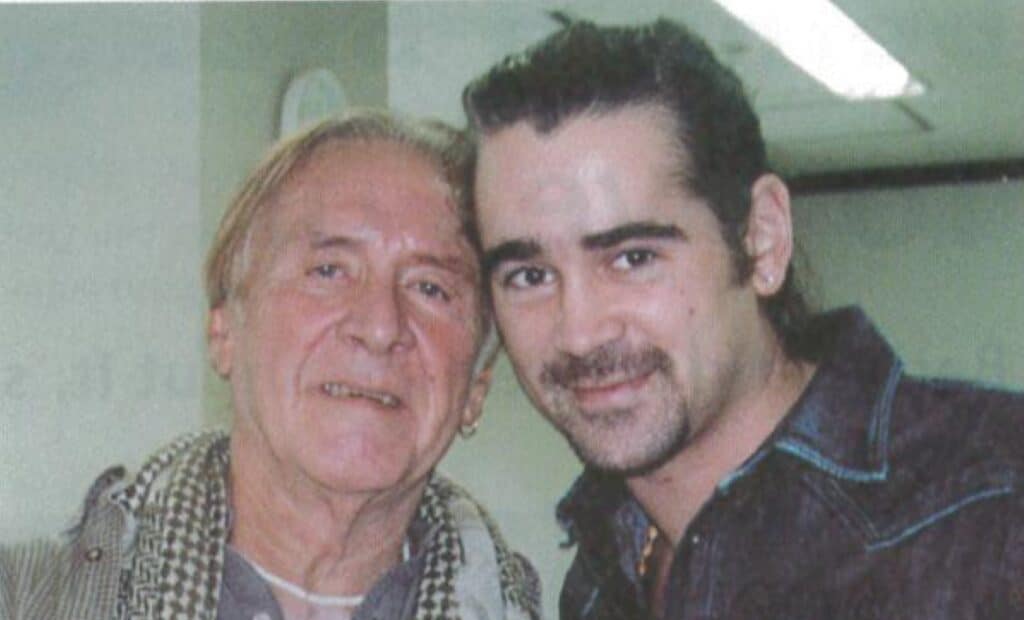
Bill was also active in social work, having arranged concerts with Rotary International, parties for the Japan Red Cross, and a series of annual Christmas events in support of children at orphanages around Japan. He also held parties to raise money for those suffering from natural disasters in Sri Lanka, the Philippines, Papua New Guinea, and Tohoku. He was helped in these efforts by a wide range of people, including the late Prince Takamado, Princess Takamado, sumo wrestlers Konishiki and Akebono, Warner Brothers and Sony Film Corporation, and scores of people from the diplomatic community.
Mary Katayama was a regular guest at the orphans’ party, which was held at the Hilton Tokyo, as well as other events around town: “It was always an honor and great pleasure to be a part of the orphans’ party and I hope it can continue. It was so nice to see the orphans all dressed up, brightened up, and happy … [At parties around town, Bill] was always dressed well, matching the theme of the party or wearing the country’s colors at the embassy parties, with cameras around his neck, always ready for a good talk.”
And the circle of Tokyo’s ambassadors and their spouses was one more that Bill made his own. As William Ireton, an entertainment executive and the former president at Warner Brothers Japan, who worked with Bill in bringing Japanese tarento to the premieres of big Hollywood movie openings, explained, “He was ubiquitous. You’d see him everywhere, whether it was at the Romanian National Day or the US Fourth of July, or the Bulgarian National Day or the Turkish National Day. He was an institution on the diplomatic cocktail circuit.”
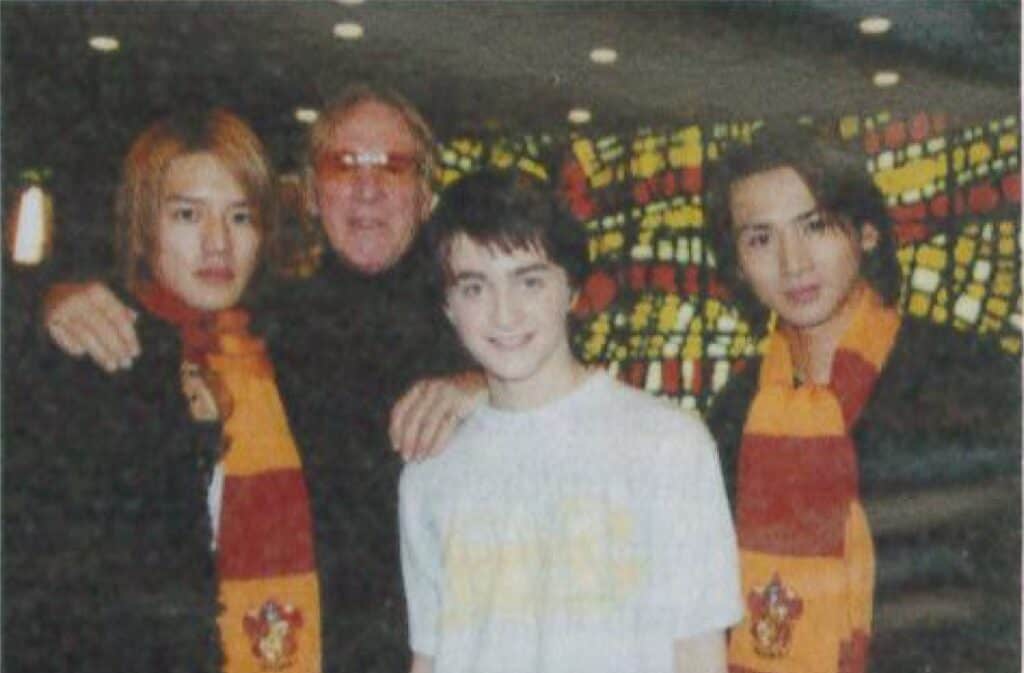
At the height of his influence, Bill’s connections could make the seemingly impossible happen, as Ceremony president Tsukasa Shiga, a former business partner, and longtime friend remembers: “Prince was coming into Japan to do two shows – one in Osaka and one in Tokyo. He had a really elaborate stage setup that was flying in from Germany. For some reason, the stage sets got stopped at customs, and without the stage, there was going to be no Prince show! The organizers of the concert called Bill, and he got in touch with the Cultural Affairs Department at the US Embassy, and within a few hours, the stages were rushed through customs and the show went on. It was amazing what Bill could get done with just a few phone calls.”
Bill spent a lot of time with celebrities, but he had a means of putting them at ease, explains Ireton: “I think the bottom line is that Bill never wanted anything out of anybody. He never had an angle that he wanted to work. He was just an honest guy, and he said, ‘This is what I do: I live in Japan and I’m a journalist.’ Sometimes celebrities are a little wary of people who have an angle, but Bill never presented himself that way. And it’s true. It went back to his persona: he was genuinely interested in helping people who needed help, whether it was ‘I need some help getting people to a premiere,’ or him giving money to a homeless guy.”
Steven Haynes, an entertainment impresario and a long-time friend of Bill’s, puts it another way: “Bill got along well with celebrities because he was one! [laughs] He didn’t come at you like you were above him or below him, he just came at you with ‘Hi, I’m Bill.’”
Haynes first met Bill on his first night as a go-go dancer at a club in Tokyo, and was struck when Bill offered to do for him what he did for almost everyone: help them out. “So this very distinguished man came up to the stage and introduced himself to me. He said, ‘I’m Bill Hersey. And anything you need in Japan, you come to me.’ And I was like, ‘Oh my gosh, I just got here, I don’t know anybody, and somebody says that to me. Who is this guy?’ And gradually, he’d invite me to events and parties and unbelievable places. Like, would you like to dance for Liza Minnelli? You want to meet Janet Jackson? He would just call me up and say ‘Hey, we’ve got Led Zeppelin coming to the club tonight, bring your friends’ … He set the stage for many people’s opportunities to come true, and he laid out the carpet for them, no matter what color they were, what country they were from, or their financial background.”
He left a similar impression on the TW team, as Matthew Holmes, one of the magazine’s former editors, recalls: “Bill was a tremendous presence – the energy he brought to the TW office on his many whirlwind visits would linger for hours as we digested the latest anecdotes, reminiscences and tales of life in his favorite city.
“I first met Bill around 2012 when joining the TW team and he was always a supportive and inspiring advocate of life in Tokyo – though I have since left the city I consider my second home he’ll always remain a big part of mine and I’m sure many people’s experiences and memories.”
Norman Tolman, a noted art collector and dealer, remarked that Bill covered as much of Old Edo (as he would often put it) and its denizens as he could, always with others in mind: “Whatever lunch, dinner, party of any kind, fund raiser for the poor, and fun living for the rich, if Bill could get there, he got there. and he made sure that you knew that he got there for you, not for himself. Bill was always willing to help out and expected little in return. How he managed to keep people’s names in order, and come up with something nice to say about everyone, always amazed me. He seldom had an axe to grind, and if he did, he just ground it and moved on.
“Having known him since his early days of running a clothing shop and watching him absorb the duties of keeping track of what was going on in Tokyo in his social scene was a great pleasure. I know that everyone searched each of his columns for his own name and because Bill worked so hard at it, we were never disappointed.”
Towards the end of his life, Bill’s steps slowed, but his fascination with people and what they were up to never abated. He continued his work with TW and maintained a social schedule that would have exhausted someone decades younger to the very end. Haynes said that Bill would occasionally complain about growing older to him, but he would remind him of where his many steps had taken him, and what his friends and fans won’t ever forget: “Bill, you have an amazing life, and one day we’re all not going to be here. But one thing about you that you have to remember is when you leave, your name and your voice will always sing out. It’ll always sing out.”
by Alec Jordan
Permission to reprint by Tokyo Weekender

